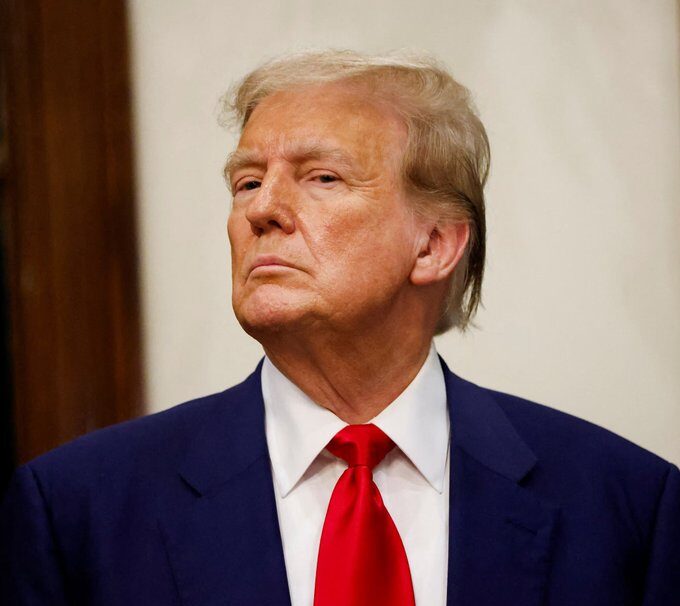A New Front in Trump’s Battle with the Media
Former President Donald Trump has launched a dramatic $10 billion lawsuit against The Wall Street Journal (WSJ), its parent company Dow Jones & Company, media mogul Rupert Murdoch, and several journalists, marking one of the largest defamation actions ever filed by a public figure against a major news outlet. The lawsuit, submitted in a Miami federal court, centers on a WSJ article published on July 18, 2025, which alleges that Trump wrote a “bawdy” and sexually suggestive birthday letter to the late financier and convicted sex offender Jeffrey Epstein in 2003.
The Controversial Article
The WSJ article at the heart of the dispute reported that Trump purportedly authored a note, illustrated with a sketch of a nude woman and a suggestive message, which was then included in a commemorative album created by Epstein’s associate Ghislaine Maxwell to mark his 50th birthday. The report, based on documents purportedly reviewed by the Journal, insisted that the letter bore Trump’s signature and included the phrase: “Mayeverydaybe another wonderful secret.” The publication reignited intense scrutiny of Trump’s long-documented but controversial relationship with Epstein, who died in jail in 2019 while awaiting trial on charges of sex trafficking.
Trump’s Legal Claim
Trump’s lawsuit asserts that the WSJ story is
“false, malicious, defamatory and manufactured for maximum damage,”
and accuses the defendants of “reckless disregard for the truth” and “clear journalistic failures.” The suit claims the article has caused Trump severe financial and reputational harm, especially given its timing during ongoing controversies about the release of documents related to the Epstein case and escalating political fallout among sections of his core supporters.
According to the legal complaint, the defendants include:
- Dow Jones & Company (WSJ’s publisher)
- News Corp (parent company)
- Rupert Murdoch (owner)
- Robert Thomson (News Corp CEO)
- Reporters Joseph Palazzolo and Khadeeja Safdar, who authored the Epstein article
Trump’s Response and Public Reactions
On his Truth Social platform, Trump condemned the WSJ as a “useless rag” and accused Murdoch and the Journal of orchestrating a campaign of “fake news” against him.
“We have just filed a POWERHOUSE Lawsuit against everyone involved in publishing the false, malicious, defamatory article,” he wrote, adding, “I look forward to getting Rupert Murdoch to testify in my lawsuit against him and his ‘pile of garbage’ newspaper. That will be an interesting experience!”
The lawsuit comes amid escalating calls from Trump’s supporters for the White House to release all remaining files related to Epstein’s criminal cases. Critics within Trump’s base have expressed disappointment over the administration’s handling of the Epstein records, igniting debate and fueling allegations of a cover-up.
WSJ and Dow Jones Response
Dow Jones and The Wall Street Journal have defended their reporting. In a statement, Dow Jones said,
“We have full confidence in the rigor and accuracy of our reporting, and will vigorously defend against any lawsuit.” The publisher emphasized the extensive sourcing and fact-checking that preceded publication of the Epstein article and vowed to “stand by the work of our journalists”.
The Larger Context
This confrontation strikes at the heart of tensions between Donald Trump and mainstream American media. During and after his presidency, Trump has regularly targeted press organizations with claims of bias, malice, and inaccuracy. However, this lawsuit is unprecedented in its demand for $10 billion in damages—a sum reflecting both the scale of the alleged personal and professional harm and the high-profile nature of the claims.
Moreover, the case revives the national conversation around high-society links to Jeffrey Epstein and unresolved questions about the wealthy and powerful individuals who associated with him. Trump’s legal move also aligns with renewed scrutiny of his political leadership, as well as the Justice Department’s recent moves to unseal grand jury transcripts in Epstein-related cases.
What Happens Next
Legal experts predict a long and highly publicized judicial process. The defendants have indicated a readiness to fight the suit in court, setting the stage for potentially explosive testimony and the exposure of internal journalistic procedures. The case also raises questions about the balance between public interest media reporting, the boundaries of defamation law, and the political calculations of both Trump and his critics.
For Trump, the outcome could either clear his name in the eyes of supporters or further entrench controversy at a critical time. For the Journal and Murdoch, victory would bolster the standing of investigative journalism under intense political pressure.
As the legal battle unfolds, it is sure to remain a focal point in an already turbulent American media and political landscape.

